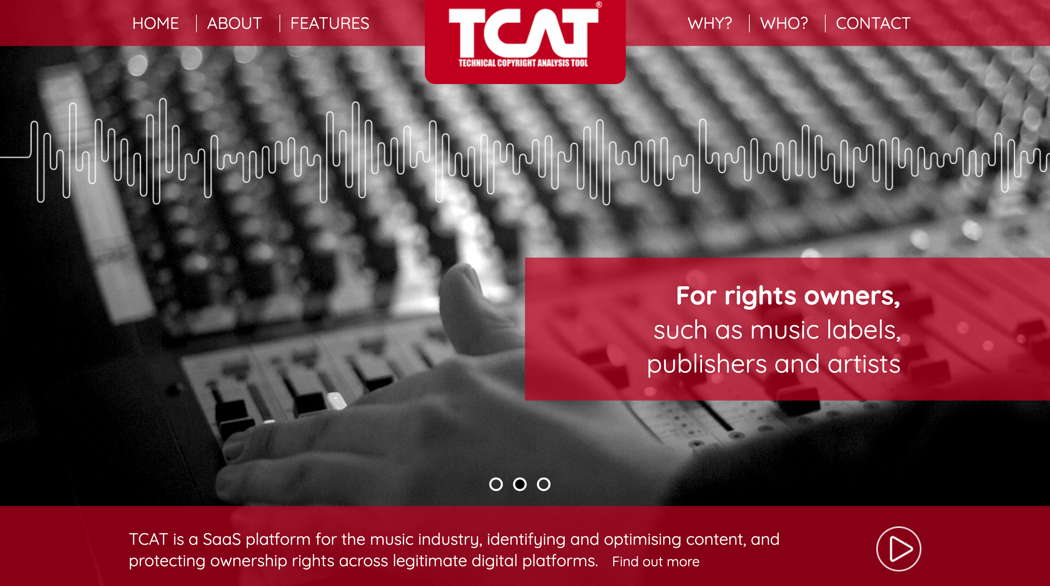 DISCUSSION: John Dante Prevedini leads a discussion about Composers, individuals or collective?, including contributions from David Arditti, Halida Dinova, Robert McCarney and Jane Stanley.
DISCUSSION: John Dante Prevedini leads a discussion about Composers, individuals or collective?, including contributions from David Arditti, Halida Dinova, Robert McCarney and Jane Stanley.
Pirates Ahoy!
A new anti-piracy software service is set to curb the lockdown spike in illegal music streaming
According to the International Federation of the Phonographic Industry (IFPI), over a third of music consumers continue to acquire music through illegal means, which is estimated to cost the music industry $7bn a year in lost revenue. Despite the rise in legal streaming over recent years, sophisticated music piracy continues to plague the industry, and the IFPI reports that the global industry is yet to build back its revenues to the $23.4 billion it made in 2001, reaching $20.2 billion in 2019.
The global pandemic appears to have only exacerbated the issue with the number of visitors to pirate sites growing in 2020, with more consumers looking for music content. In 2020 to date, the British Phonographic Industry (BPI) has discovered over 10,000 new sites and applications variously used to pirate music. According to the BPI, this has cost the UK music industry alone £135.8m in 2020.
But it is not just on pirate sites that these clever bandits float their boats. Piracy on legitimate stores such as Spotify, Apple Music and Deezer also exists. From cloned music to leaked new releases the pirates will sink to any depth to disrupt and divert crucial music data and hit potential revenues and chart data. We simply do not know the lost value of this sunken treasure but some industry reports say at high tide it could be as much as $300m during 2020.
The Technical Copyright Analysis Tool (“TCAT”), created by the digital music owner and publisher One Media iP, is the industry’s most effective solution created to date to tackle music piracy on legitimate stores. Used by two major record labels and the world’s largest music distributor, as well as organisations that represent the interests of the recording industry worldwide, TCAT polices and monitors legitimate music stores (such as Spotify, Deezer, Apple Music) to protect ownership and revenues for music rights owners.

Screenshot of tcat.media homepage taken on 10 December 2020
TCAT is able to discover and can instigate ‘take downs’ of unauthorised cases of exploitation, incorrect public domain use and duplicated releases, while simultaneously identifying further opportunities for content owners to maximise their revenues. TCAT can also provide content owners with reports into the global presence of their releases, from chart performance to territorial sales and pricing fluctuations.
Under the direction of a highly accomplished senior management team consisting of Big Data technology experts and chaired by Dr Ed Vernon OBE, a UK and Ireland tech industry expert, TCAT is rapidly developing and scaling to become the industry recognised copyright infringement service.
At its heart, TCAT aims to harmonise the music ecosystem’s virtuous cycle of reinvestment, ensuring that revenues reach their rightful recipients so that the proceeds of commercially successful releases can be reinvested into the production of new music.
The anti-piracy service has engaged with its clients and collected music metadata (the collection of information that pertains to a song file, such as Artist Name, Producer, Writer, Song Title, Release Date, Genre, Track Duration) from over 120 million songs (as at September 2020).
Michael Infante, Director of TCAT, commented: “Music piracy is becoming an increasingly sophisticated pandemic, so is requiring cutting edge technology in order to monitor and capture IP infringements.
“Based in Belfast, a leading technology hub, and led by an incredibly talented and experienced team of engineers and data scientists, TCAT is constantly looking for opportunities to scale and evolve, integrating the latest AI and machine learning technologies to ensure early and efficient identification of potential infringements. TCAT protects the rights of artists and owners in real time and plays a major role in enabling the industry to stay ahead and afloat of the pirates.”
Information: tcat.media
Posted 12 December 2020 by Annabel Atkins




